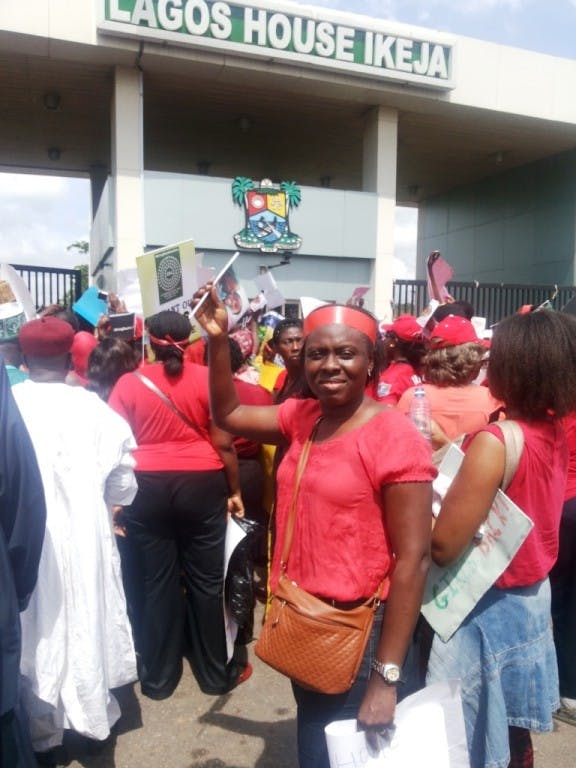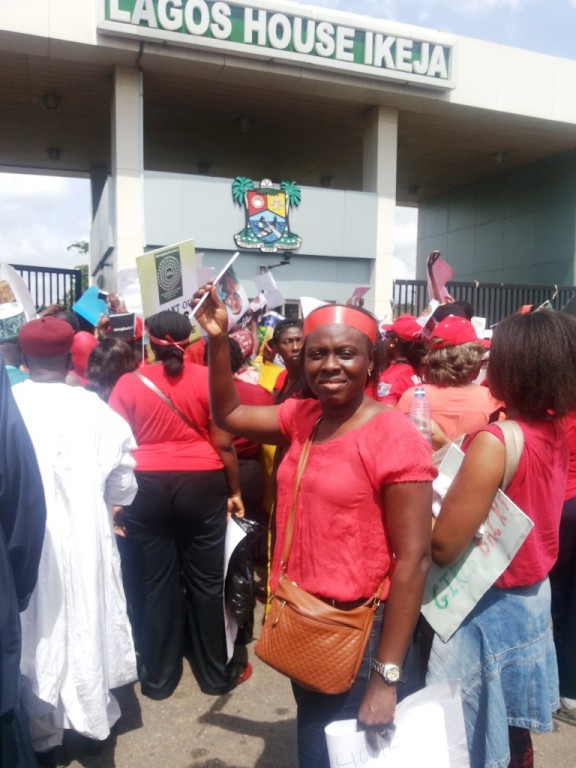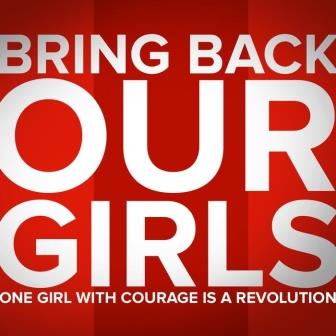Are Nigerians Angry Enough? – How online activism sparked debate
Jan 21, 2015
Story



There has been global outcry since the abduction of the #Chibokgirls (276 school girls taken from their school in Chibok, Borno State, Nigeria at night on the 14th of April 2014) by Boko Haram, an insurgent group from Northern Nigeria that was officially declared as a terrorist group by the United Nations Security Council shortly after the abduction.
The global attention and demand for the return of the girls have been largely linked to the successful #BringBackOurGirls twitter campaign led by civil society actors and concerned citizens as a result of the government of Nigeria’s inaction 2 weeks following the abduction. In a show of solidarity, women in Nigeria organised themselves and responded to a call to action spurred by a twitter campaign to come out and stand for justice. In an unprecedented move, a situation in a small town in North-East Nigeria drew the world’s sympathy, bewilderment and solidarity. International news channels including CNN and Aljazeera ran series of focus stories on the incident joined by international figures such as Angelina Jolie tweeting #BringBackOurGirls pictures and messages.
However, as days turned into weeks and months, many international spectators who have shared our pain and taken steps from protests at Nigerian Embassies abroad from Nairobi to Monrovia and from London to Washington as well as letter petitions to the Nigerian government are asking the question: Are Nigerians angry enough?
I have been asked this question a lot: Are Nigerians angry enough? Because, people cannot understand why with the international pressure that has been made, there has not been a concerted effort by Nigerians themselves, excluding the #BringBackOurGirls campaign family who have regular sit outs and have consistently maintained pressure online, to come out in mass protests demanding quicker action by the government.
There is no single answer. But I can proffer some possibilities. Nigeria is a big country and there has always been a political divide between the Northern part and the Southern part of the country. Essentially, all of the attacks by Boko Haram have been in Northern Nigeria with most of the attacks in the North-East states of Adamawa, Borno and Yobe and single or sporadic attacks in North-Central notably Abuja and Nasarawa. Recent attacks have extended to cities in North-Central closer to Southern Nigeria borders e.g. Jos. Apart from the disputed and unconfirmed blast at a port in Lagos in the South-West, there has been no attack in the South of the country. This has led to the erroneous belief that Boko Haram is a Northern problem and should be contained and dealt with by the government in the North. There is no direct effect on businesses in the South and risks of schools or children being attacked are minimal.
While people in Southern Nigeria are concerned about what is going on in the North there is a general sense of helplessness that they cannot do anything about it to urge the government to act. Instead, there are calls for people to prepare for a counter attack should Boko Haram decide they want to focus on the South. This raises fear of proliferation of small arms in the region as well as rise of vigilante groups which is already a threat in the North. In their quest to protect their families and communities, many vigilante groups including the organised Borno Youth Association of Peace and Justice (also known as civilian joint task force against Boko Haram) have sprung up in North-East Nigeria. Whether we accept it or not, Nigerians in the most affected areas set up vigilante groups because they were angry and fed-up with the incessant attacks and government’s inability to protect them.
We should not ignore the impact online empowerment has helped in keeping the issues in the news and led to a number of debates on how best to tackle the situation. Never before has the risk and danger women and girls are exposed to in armed conflict gotten such widespread condemnation and support. Social media played a key role in this. Other twitter campaigns in the past such as #OccupyNigeria in response to the increase in fuel prices in Nigeria in January 2012 showed the potential that social media activism and digital action can have on advocacy for social change and online empowerment. The #BringBackOurGirls campaign is also riding on and learning from prior actions. Now there is a twitter handle: @BBOG and new hashtag #BBOG dedicated to the campaign.
Personally, I have participated in some of the protests in Lagos and joined my voice to demand for safety and security of women in general and the safe return of the abducted #Chibokgirls using twitter, Facebook, BBM (Blackberry Messenger) and online campaigns. Are these enough? I visited Maiduguri, the capital city of Borno State in April 2009 and I cannot imagine how it is now in 2014. I have not been to Chibok in Borno State where the girls were taken from but I know a few women activists who have or tried to go but their mission ended in Maiduguri because security forces are not giving anyone clearance to go to Chibok. However, they met with family members of the abducted girls and other community members. These fact-finding missions would not have happened if a call for action had not started online through the twitter campaign.
What has come out from this online empowerment? One success was the setting up of a Presidential Fact Finding Committee by the President of Nigeria which on 20 June 2014, confirmed that of the 279 girls abducted, 57 girls escaped while 219 girls are still missing. Before then we were not sure of the exact number of missing girls. Another success is that it has stimulated debate on sexual and gender based violence (SGBV) and increasing demand to end impunity by punishing perpetrators. The threat by the Boko Haram leader, Abubakar Shekau that he will sell the girls shocked the world to the reality of women and girls as weapons of war precisely as sexual slaves, child brides, trafficked persons and comfort women. We cannot imagine the horrors of being subjected to that kind of violence or threat of violence.
I opened my twitter handle @livingtruely (www.twitter.com/livingtruely) in February 2010 but did not actively start to use it until 2011. My Facebook has been active since the time I opened it. I also manage the Alliances for Africa Facebook page: www.facebook.com/AlliancesforAfrica. Since participating in the VOF (Voice of our Future) in 2011, my use of Social media and online activism has steadily increased. Online empowerment to me means claiming my space online to share resources and bring about change.
The #BringBackOurGirls campaign and similar campaigns have shown us what influence women can have in bringing issues that concern them to the mainstream. Digital or online empowerment will ensure that women and girls in remote environment can still participate and demand action for their rights.
So, I use this opportunity to ask you all, how angry can we get to mobilize action in our communities? How can we use social media and other digital tools differently for effective action? If you were in Nigeria right now what else would you have done against this threat of insurgency?
Thanks to everyone who has stood in solidarity with our Nigerian sisters, families and communities. It shows that our humanity is still strong and we understand the interconnections of our world. When you retweet us, or post a picture or message of solidarity, you tell us that you feel our pain, you understand our loss, you share our indignation, and you support peace and justice. You recognize that “Injustice anywhere is a threat to justice everywhere. We are caught in an inescapable network of mutuality, tied in a single garment of destiny. Whatever affects one directly, affects all indirectly.” Martin Luther King Jr.
Thank you.
Resources:
Martin Luther King Jr. "Letter From a Birmingham Jail" http://www.reform-magazine.co.uk/2013/03/letter-from-a-birmingham-jail/
Conectas Interview: http://www.conectas.org/en/actions/sur-journal/news/22113-bringbackourgirls




